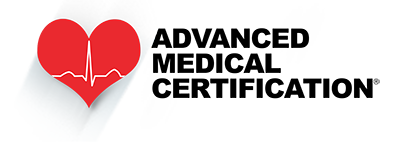Making Your First Day of Your Dream Nursing Job Successful
Making Your First Day of Your Dream Nursing Job Successful

by Greta Kviklyte
Life Saver, AMC
Co-authored by Kim Murray, RN, M.S.
posted on Nov 10, 2016, at 9:39 pm
YOU ACED THE INTERVIEW and have been hired for your dream nursing job. After orientation, you are ready to report to your unit for the first day of work. However, knowing a few extra things that you did not learn in school or orientation can help make your first day a success. Start with these extras, but do not be afraid to add to them.
We offer Online ACLS, PALS and BLS Certification and Renewal
 Wear Your Uniform and a Watch.
Wear Your Uniform and a Watch.
It all begins with your uniform. Wear the scrubs or other uniform required by your unit. Avoid flashy, bright colors unless required by your employer.
Bring Four Pens.
Regardless of your personal track record, you are going to lose a pen or two. Other staff members may borrow, if not keep, them. They could fall into biohazard containers or they may run out of ink. Bring at least four pens, and have a few spares in your bag.
Bring a Stethoscope Holster.
Many nurses wear their stethoscopes like a necklace, but have you thought about how many germs could be lurking around your neck? If nothing else, sweat can deteriorate the plastic of your stethoscope. Consider purchasing a stethoscope holster to keep it free from contamination and out of your way.
Pack Your Lunch.
It will be tempting to sample the cafeteria food or order out, but greasy foods may cause indigestion, and eating too much will bring on a sugar-crash. Pack a lunch with healthy foods, and include a few high-protein snacks as well, such as peanut butter and crackers.
Your Shift Starts 15-Minutes Earlier Than Anyone Else.
Most shifts start at least 15-minutes before the “official” time. If your shift starts at 8:00 am, be ready to receive report at 7:45 am. This means you should get to work around 7:30 to have to put away your belongings and find your assignment.
Remember ALL of Your Patients, and Be Patient.
The first day on the floor is your opportunity to spend time with your patients. However, spending that extra time getting to know a patient will quickly turn into “hiding out in Mr. Smith” in the eyes of your coworkers. Perform your duties, and remember you have more than one patient. Divide your time appropriately, and be patient with those who may be angry or upset. After all, most people do not want to be in the hospital.
Keep a Paper “Brain.”
Electronic charting is a great way of accurate health records, and more facilities use it than ever before. However, you should keep a paper “brain” with little reminders of what your next responsibilities are. The following items should be included on your “brain:”
- Names and locations of each patient assigned to you.
- Times glucometer checks or lab work is required for each patient.
- Times procedures are scheduled.
- Names of other staff assigned to your patients, such as nurses or medical assistants.
Although this information is in the electronic health record (HER), keeping a list of notes will help you with charting and managing your workload. Some of the best ideas for paper “brains” include creating a table-chart on a single sheet of paper and stapling several sheets of paper together, one for each patient. Of course, remember to throw your paper “brain” in the shred bin at the end of the day.
Interact With Your Peers.
Your peers know the drill for your floor. Be willing to learn from them, and ask questions when you do not understand something. Also, avoid the temptation to be the “perfect nurse.” In other words, ask for help if you feel you need it. You are part of team.
Be Polite.
You will encounter the whole array of human emotions on the floor, ranging from sadness to excitement. Be polite to your patients, peers and strangers you meet at the elevators. You never know when one of them could become your next patient. You represent something greater than yourself; you represent the hope of feeling better.
Expect the Unexpected.
Things are going to go wrong. An IV may come out, a person could refuse medications or your coworkers could be unavailable to help you. You cannot plan on an exact course of events when working as a nurse. Consequently, you need to expect the unexpected and adapt to the unique needs of each situation.
Reward Yourself After You Clock Out!
Your first day on the floor will be exciting, tiring and rewarding. You could encounter something your instructors never dreamed of seeing, or you could save someone’s life. When it is time to clock out, reward yourself for becoming part of an amazing group of people who spring to action when others feel like giving up.
One last thing, remember to get at least eight hours of sleep that night too.



